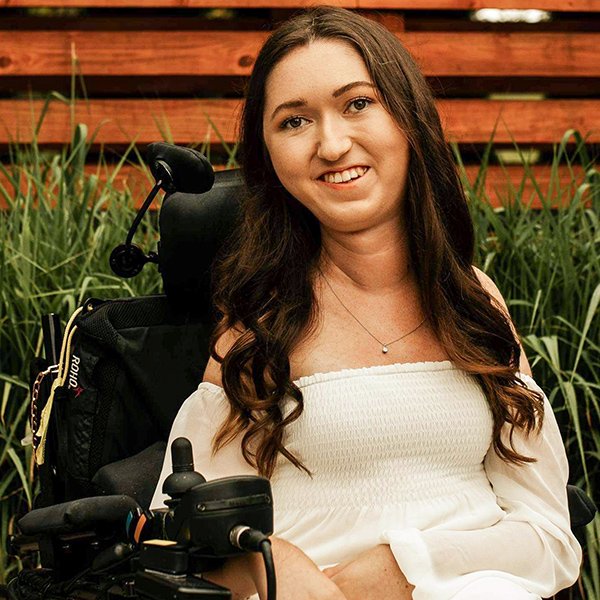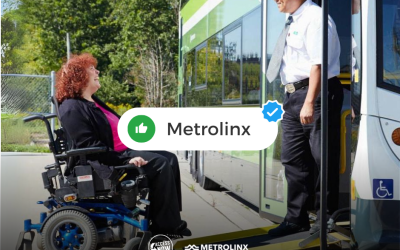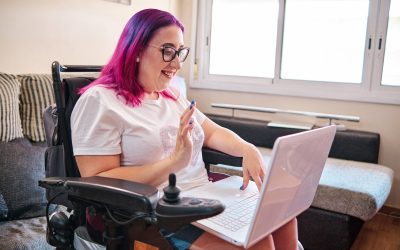As someone who has been a wheelchair user for over 20 years, I have dealt with my fair share of inaccessibility, ableism and lack of inclusion. That’s why I was enraged, yet completely unsurprised, when I found out that Israeli Energy Minister Karine Elharrar was unable to attend this year’s U.N. Climate Summit (COP26) due to lack of accessibility.
“I went to the international climate conference to promote the joint struggle in the climate crisis through meetings with my counterparts around the world,” she said. “Unfortunately, that was not possible because of accessibility problems that have no justification in the year 2021.”
Elharrar, who is a wheelchair user, waited outside for two hours after organizers refused to let her enter the summit area in her wheelchair accessible vehicle. She was eventually offered a shuttle transport to get her to the building where the conference was being held, but none of the shuttles were equipped with a lift to accommodate her power wheelchair, leaving her with no choice but to return to her hotel in Edinburgh.
Formal apologies were made and Elharrar was able to attend the conference the following day, but I cannot help but think about what message this sends to society when even the United Nations — the world’s largest and most familiar international organization — cannot get accessibility right.
Now don’t get me wrong; I’m sure this was an honest oversight and no malicious intent was present. However, that is kind of the point. Ableism in our society nowadays does not always appear as an intentional, ill-natured act of discrimination. Rather, it’s often the policies, procedures and everyday ways of life that ‘accidentally’ leave disabled people out of the conversation. It is the treatment of accessibility as a special accommodation rather than a basic human right that continuously tells disabled people “you’re not prioritized here”.
Television presenter Sophie Morgan went on BBC5Live to give her input on this issue, passionately explaining that:
If this were any other marginalized group, I think there would be outcry. But what we see is this passive … this apathy … this indifference. The “Oh yeah sorry, we’ll do better next time. We will let you in another way.” But this should be a huge source of embarrassment for the UK.
Afterwards, Morgan took to her Instagram to share some more thoughts. She writes: “it’s exhausting, it’s depressing, it’s heartbreaking. The message it sends to young disabled people is that even if you are in a position of power, a minister no less, your success will not make you immune to discrimination. We MUST do better”.
Personally, what I find most appalling is the fact that the UN released a report in April 2020, outlining that disabled people are disproportionately affected by climate change and that a disability-inclusive approach should be used to make climate action more effective. The report specifically notes that they must include the experiences and perspectives of people with different types of disabilities in all climate action initiatives. The report goes on to say, “if persons with disabilities are left out of decision-making, that leaves them unable to contribute by identifying risk reduction and adaptation measures that could be effective for, and carried out by, persons with disabilities.”
Yet, even with this very clear need for disabled people to be involved in climate action initiatives, providing an accessible environment for those voices to be heard was not the default. UK environment secretary, George Eustice, said that there appeared to have been a miscommunication and organizers had not been aware of Elharrar’s requirements in advance, which is why they had not made the necessary arrangements for her.
In response to this incident, Minister Karine Elharrar told the media how she “thought it was a very bad example of how the UN was preaching all the years on accessibility and then couldn’t implement it in its own conference.”
To top it all off, sources also note that sign language interpreters were not present, making it inaccessible to Deaf/deaf attendees as well.
While this will hopefully be a wake up call for the UN, disabled people will undoubtedly continue to go through this each and every day. With that being said, please make an effort — whether it’s in your workplace, your school, your community, etc. — to call out inaccessibility when you see it. Disabled people deserve to be included and valued always, not just when a special request is put in.

About the Author
Tori Hunter is a writer and travel enthusiast, passionate about redefining the way we view accessibility and the disabled experience. She has worked alongside numerous organizations to help dismantle access barriers, and in her free time, she likes to share her adventures as a wheelchair user on her Instagram @torihunter.blog
Latest on the blog
Important Notice Regarding Fraudulent Job Offers
Dear Community, We have been made aware of fraudulent job offers being circulated under the name of AccessNow. These offers are being sent from various unauthorized email addresses. It has come to our attention that fake employment opportunities in various roles are...
Metrolinx announces partnership with AccessNow
AccessNow app provides detailed accessibility information for improved trip planning.When it comes to accessibility, it’s always better to know before you go. That’s why we are so thrilled to share that Metrolinx is partnering with AccessNow, to share up-to-date...
Embracing Diversity: How Companies Can Champion Disability Employment Every Month
In a world that's constantly evolving, progress often hinges on our ability to embrace diversity and inclusivity. Yet, there's one facet of diversity that has often been overlooked: the inclusion of people with disabilities in the workforce. That's where National...

